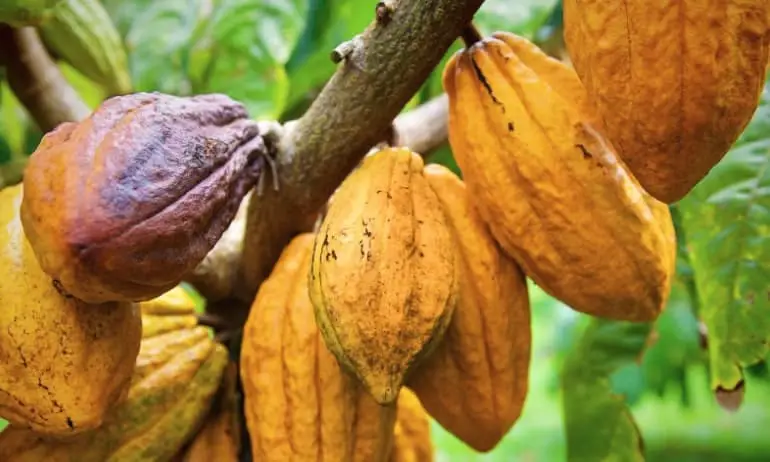Introduction
Cacao, primarily known for its beans used in chocolate production, plays a significant role in sustainable agriculture due to its less discussed component – the cacao flower. This article delves into how these flowers contribute to farmer livelihoods and sustainable farming practices.
Botanical Description of Cacao Trees
The cacao tree, Theobroma cacao, features broad, dark leaves with tiny, yet intricate flowers directly growing from its trunk. Understanding the lifecycle of these flowers is essential for optimizing cultivation practices.
Role of Cacao Flowers in Ecosystems
Cacao flowers are key to the tree’s pollination, involving a unique relationship with midges. This interaction is crucial for the reproduction of cacao and supports local biodiversity.
Sustainable Farming Practices with Cacao
Integrating cacao trees in agroforestry systems not only supports biodiversity but also enhances soil health. Organic farming techniques are increasingly adopted to maintain ecological balance and enhance crop resilience.
Economic Importance of Cacao
Cacao is a staple in global trade, predominantly benefiting countries in the tropical belt. Understanding its market dynamics helps underscore its impact on the economic stability of farming communities.
Environmental Benefits
Cacao cultivation in forest-like systems promotes biodiversity and helps in carbon storage, making it a key player in combating climate change.
Challenges in Cacao Cultivation
Despite its benefits, cacao farmers face challenges like diseases, pests, and the adverse effects of climate change, impacting productivity and quality.
Innovative Solutions in Cacao Cultivation
Advancements such as disease-resistant cacao strains and sustainable pest management are becoming vital in maintaining healthy cacao crops.
The Role of Technology in Cacao Cultivation
Technological innovations, including drone technology and artificial intelligence, are revolutionizing how farmers predict, monitor, and enhance cacao yields.
Cacao Certification and Ethical Trade
Certifications like Fair Trade are vital in ensuring ethical practices in the cacao trade, providing farmers with fair wages and better working conditions.
Personal Stories from Cacao Farmers
Real-life success stories from countries like Ecuador illustrate the positive impacts of sustainable practices, while stories from Ivory Coast highlight the ongoing challenges.
Expert Insights on Future Trends
Experts predict that sustainable practices and technological integration are likely to shape the future of cacao cultivation, ensuring its viability and sustainability.
Conclusion
Cacao flowers, though small, play a massive role in sustainable agriculture. Embracing innovative and ethical farming practices is crucial for the future of cacao cultivation. It’s imperative for consumers, policymakers, and businesses to support sustainable practices that enhance livelihoods and protect our planet.


